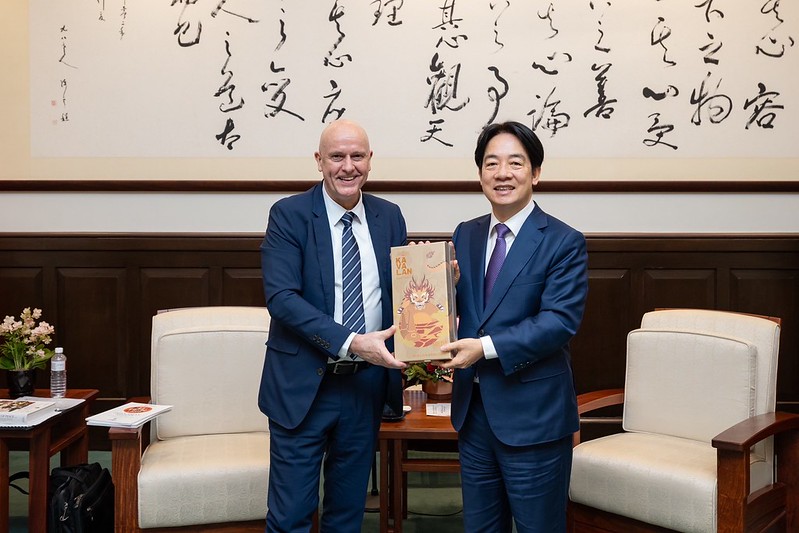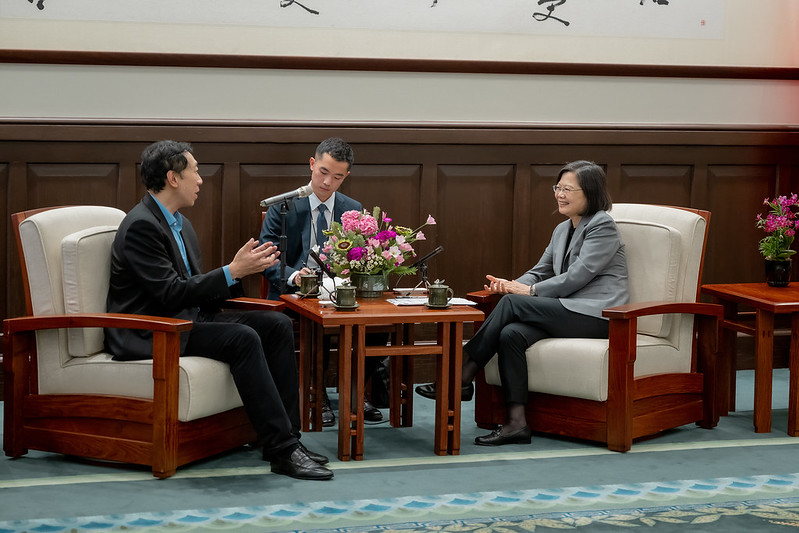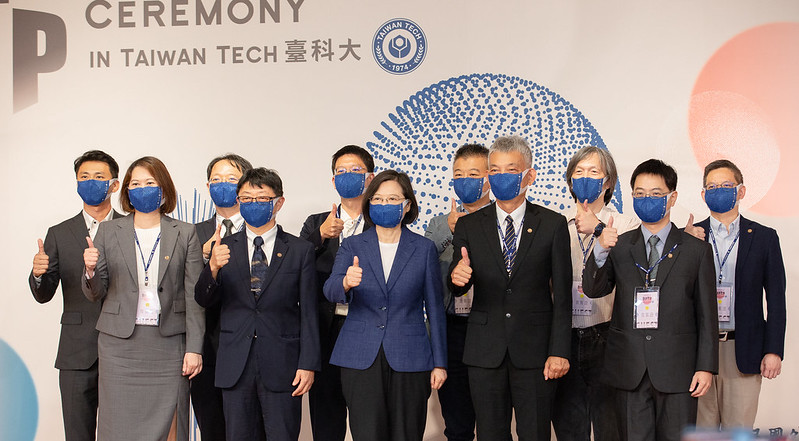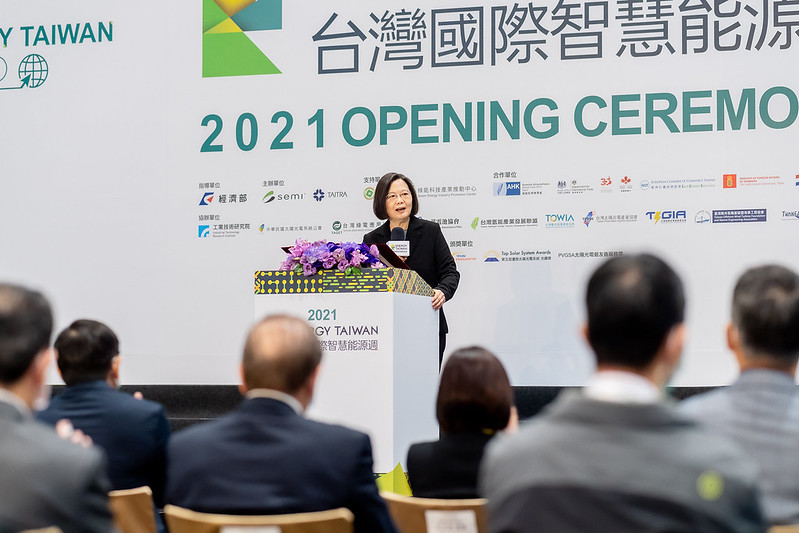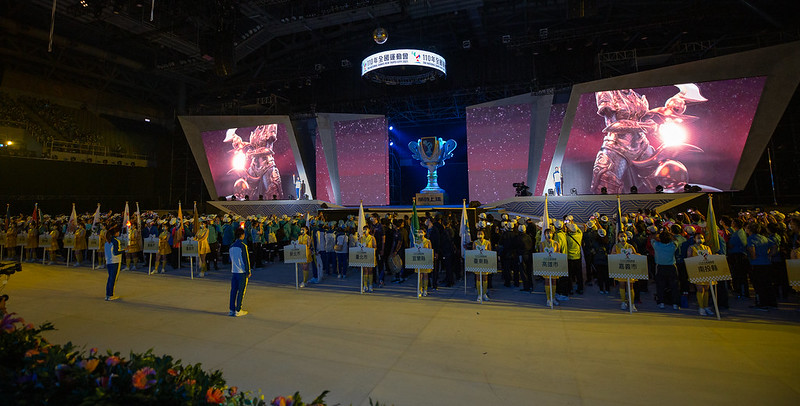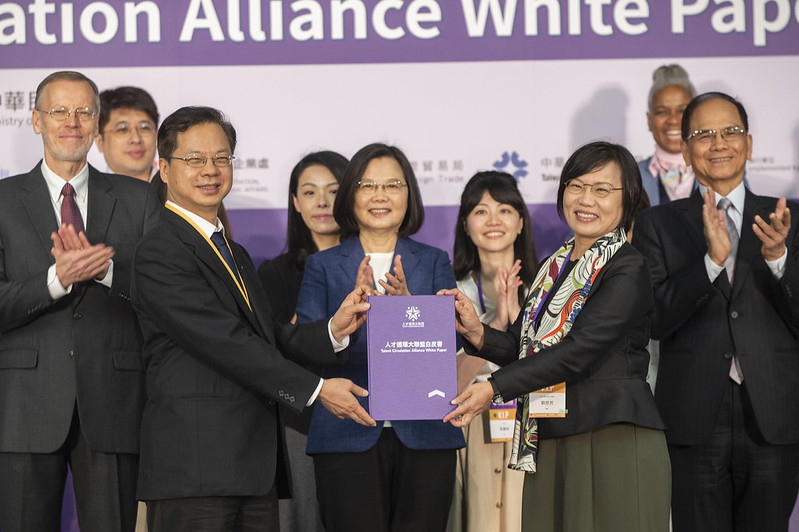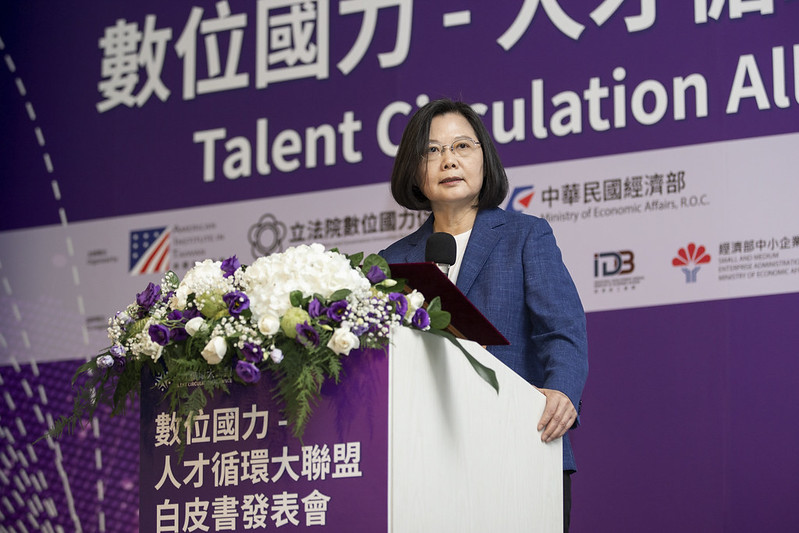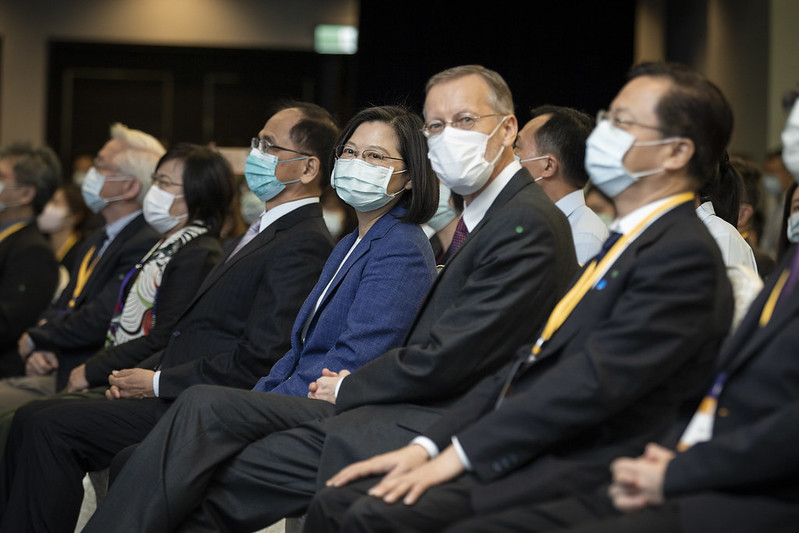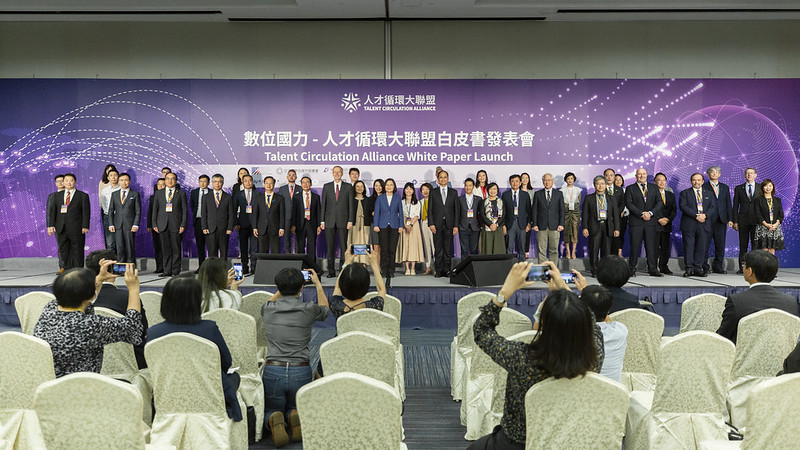News & activities
 News releases
News releases
President Tsai Ing-wen attended the release of the Talent Circulation Alliance's white paper on the morning of June 12, where she stressed that the government is committed to cultivating more Taiwanese talent with bilingual capabilities and digital skills. By further relaxing restrictions, we hope to bring in more diverse talents from around the world and turn Taiwan into an international talent center to improve our international competitiveness and meet the various challenges of the new era.
A translation of the president's remarks follows:
It is a pleasure to be here with you all today to mark the release of the Talent Circulation Alliance's white paper. In April last year, I participated in the Women's Economic Empowerment Summit jointly sponsored by Taiwan and the US. That was the first time I heard Director William Brent Christensen talk about the Talent Circulation Alliance initiative.
I want to thank the American Institute in Taiwan, our government agencies, and all of the partner enterprises participating in the alliance. Only through public-private sector collaboration can the vision behind the Talent Circulation Alliance be realized. This white paper is the result of your collective efforts, and covers a wide range of issues including startup development, women's digital economic empowerment, academic and educational exchanges, and recruiting international talent. This white paper also provides many valuable suggestions about the free circulation of talent. So I want to thank everyone once again for their willingness to share experiences and provide constructive input.
The COVID-19 pandemic has created unprecedented challenges, so we need these solutions now more than ever. The pandemic's impact has also highlighted industry's tremendous need for innovative capabilities. Whether it's contact tracing, smart resource allocation, distance working and learning, or creative digital solutions, these are our best tools to fight pandemics. And the key to developing these tools is finding ways to develop more innovative talent.
Due to the pandemic, supply chains around the world are shifting, and Taiwan stands ready to take advantage of these opportunities and play a key role in supply chains of the future. To meet these challenges and opportunities, we are going to strengthen Taiwan's talent pool in two major areas: bilingual capabilities and digital skills. By focusing on these two areas, our workforce will be equipped with the tools they need to succeed in the global age.
In the "bilingual capabilities" area, to reach our goal of making Taiwan a bilingual country by 2030, over the past few years we have implemented policies to promote English learning across all stages of life. We are encouraging elementary schools to adopt English-language curriculums and subsidizing English education research centers at universities. We are also organizing business English courses for high-level management talents.
To make it easier to live and work in Taiwan, we are working to make our government offices and banks bilingual. We also plan to establish a financial talent training center to strengthen the quality of talent in this sector.
In terms of digital skills, we need to cultivate more talents in AI, ICT, and cybersecurity. We will continue to organize professional training courses tailored to the needs of those industries, and encourage international companies to work with us to train local talents. We will also help more young Taiwanese professionals study and work abroad, so they can bring back new skills when they return.
Our goal is to globalize our industries. Taiwan is already a leader in technology, manufacturing, and R&D. We hope to bring in more diverse talents from around the world to continue improving our competitiveness in the international arena. Since 2018, we have issued 720 Employment Gold Cards to outstanding international talents. In the future, we will further relax restrictions, hire more foreign professionals, and increase incentives to encourage more companies to hire them.
In addition to high-level management talents, Taiwan also needs to attract more students from top universities around the world to study, intern, and work in Taiwan. To borrow the words of today's white paper: We hope to turn Taiwan into an international talent center. That is why programs like the TCA are so important, because they help link talents from Taiwan, the United States, and around the world with industries where they can make concrete contributions. And with the circulation of talent comes the circulation of ideas, innovation, and inspiration.
We take the suggestions in this white paper very seriously. National Development Council Minister Kung Ming-hsin is also with us today, and I hope the Council will refer to and utilize those suggestions, and redouble their efforts to continue improving our human resource policies and the relevant regulations. And in the future, I look forward to diversifying Taiwan-US cooperation on talent cultivation and exchanges.
Once again, I want to thank you all for being here and for your contributions to the Talent Circulation Alliance. Together, we can train the next-generation talents the world needs to meet the challenges ahead.
